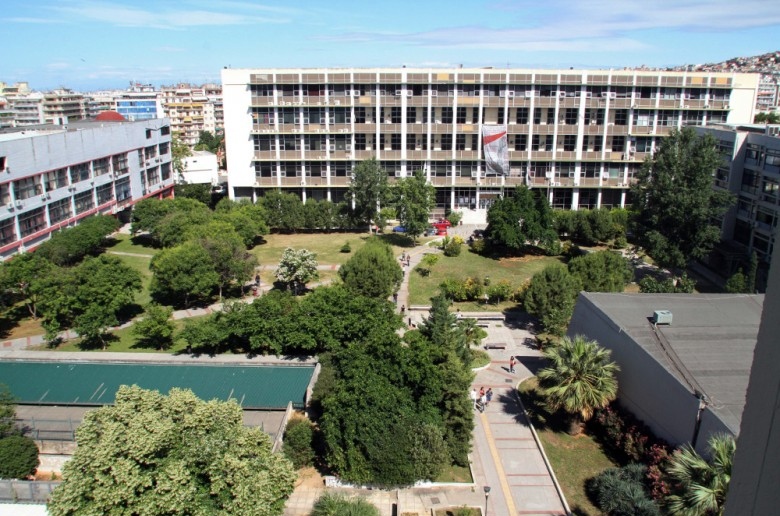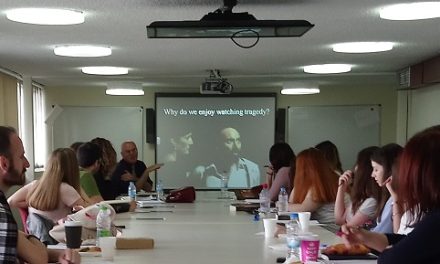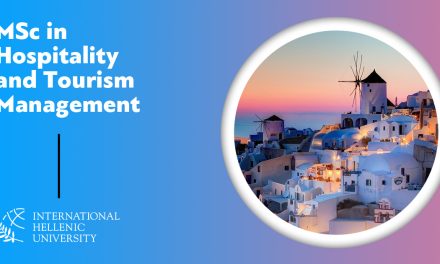The web portal Study in Greece is campaigning for the promotion and international visibility of Greek Universities and the comparative educational advantages of our country. In particular, the campaign focuses on the foreign language study programmes that Greek Universities offer to Greek and international students. The initiative is supported by the General Secretariat of Higher Education of the Ministry of Education and Religious Affairs and the General Secretariat for Greeks Abroad and Public Diplomacy of the Ministry for Foreign Affairs. In this context, a number of educational programmes and actions are presented in detail on a regular basis, such as undergraduate and postgraduate programmes, summer schools etc, to inform international students about the many foreign language options offered by Greek Universities.
Study in Greece interviewed Professor Panagiotis Glavinis of the Faculty of Law of the Aristotle University of Thessaloniki (AUTh) on the new English-speaking LLM Programme in European Business and Economic Law offered at AUTh, its features and what it has to offer to international students.
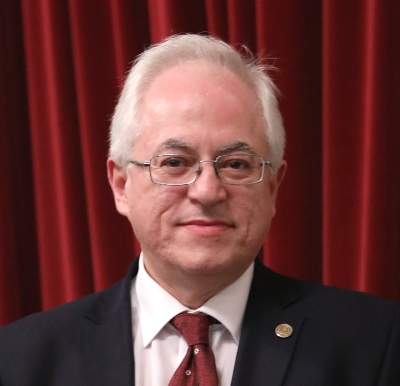 Panagiotis Glavinis is Professor of International Economic Law at the Faculty of Law of the Aristotle University of Thessaloniki, where he teaches International Trade Law, International Investment Law, International Business Transactions, Cooperation for Development and Energy Law, at graduate and undergraduate level, and a distinguished Lawyer at the Supreme Court of Greece. He is a lawyer before the Thessaloniki Bar Association since 1992 and, for many years, he participated in international consulting teams in large technical assistance projects of the European Commission in the sector of energy transport in Central Asian and Eastern European states.
Panagiotis Glavinis is Professor of International Economic Law at the Faculty of Law of the Aristotle University of Thessaloniki, where he teaches International Trade Law, International Investment Law, International Business Transactions, Cooperation for Development and Energy Law, at graduate and undergraduate level, and a distinguished Lawyer at the Supreme Court of Greece. He is a lawyer before the Thessaloniki Bar Association since 1992 and, for many years, he participated in international consulting teams in large technical assistance projects of the European Commission in the sector of energy transport in Central Asian and Eastern European states.
Professor Glavinis, can you tell us what the LLM in European Business and Economic Law deals with?
The LLM in European Business and Economic Law is a one-calendar year Master’s programme starting from 1st October every year and ending on 30 September the following year. It comprises two semesters of teaching followed by the preparation of a Master’s thesis in the summer time. A substantial part of this programme may be offered on-line. For those students who will select the education in-person, they will not be obliged to stay in Thessaloniki after the successful completion of the spring semester’s exams, which take place in June. They may return back home and prepare their next step to their career, unless they prefer to spend their summer vacation in the nearby region of Chalkidiki, one of the most beautiful places in Greece, only 100 klm away from Thessaloniki.
As the programme is entirely taught in English, why in would foreign and Greek law students choose this master’s degree? What will be the prospects in the future?
We have elaborated an inclusive curriculum comprising Banking and Finance, Intellectual Property Law, Data Protection and ICT Law, EU Trade and Investment Law and Policy, Competition and Public Procurement Law, International Business Transactions, Energy Law and Sustainable Development, which offers enhanced knowledge in EU Business and Economic Law. This LLM has been designed for both Greek and non-Greek citizens, who are law graduates and who wish to enhance their legal background in law governing business and economic activities in the European Union. It is particularly useful to non-EU law graduates, who want to do business in the EU. Modern economies are knowledge-based and services-oriented. From this point of view, the EU is the largest and most dynamic market in the world. Acquiring knowledge in EU Business and Economic Law will be a valuable tool for every law graduate wishing to do business in the EU.
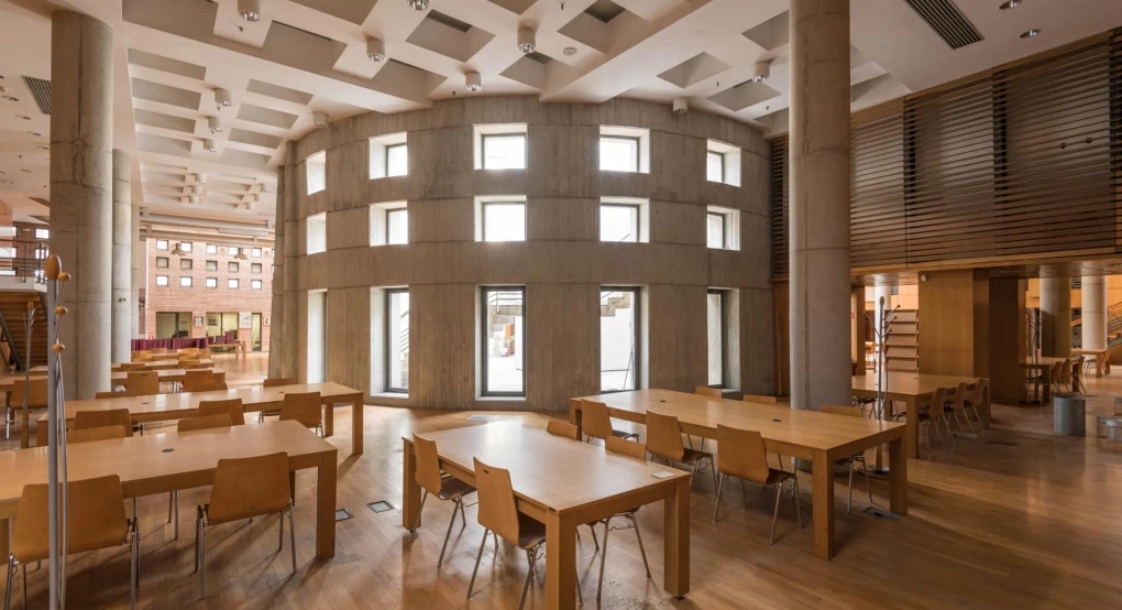 What has been the output so far? Is it satisfactory?
What has been the output so far? Is it satisfactory?
The LLM in European Business and Economic Law will start operating in the forthcoming academic year 2022-2023 (the application period is open until 31 August 2022). Therefore, we do not have any output yet. However, the enthusiasm with which students around the world have embraced the idea of studying EU business law in Thessaloniki next year is particularly encouraging. We look forward to recruiting foreign law graduates originating in EU and especially non-EU countries, who will form a multinational group of students prepared to embark on the same European adventure.
Concerning the efforts of extroversion and internationalisation undertaken by the Greek universities, do you believe that Greece can achieve this aim? What will be the benefits?
Greece is the right place for foreign students wishing to spend one year in a hospitable place, plenty of history and culture. Thessaloniki is on the crossroad between Europe and Asia. Moreover, the tuition fees are very competitive (only 3000 euros for our LLM) and the cost of living does not exceed 8000 euros per year. These are comparative advantages, which make Greece an ideal place to study. In addition, higher education in Greece offers programmes of quality, which are comparable to the ones offered by the most reputed European Universities. Our English-speaking LLM is not only a best value for money Master’s degree, but also an excellent choice by itself in terms of curriculum and academic standards.
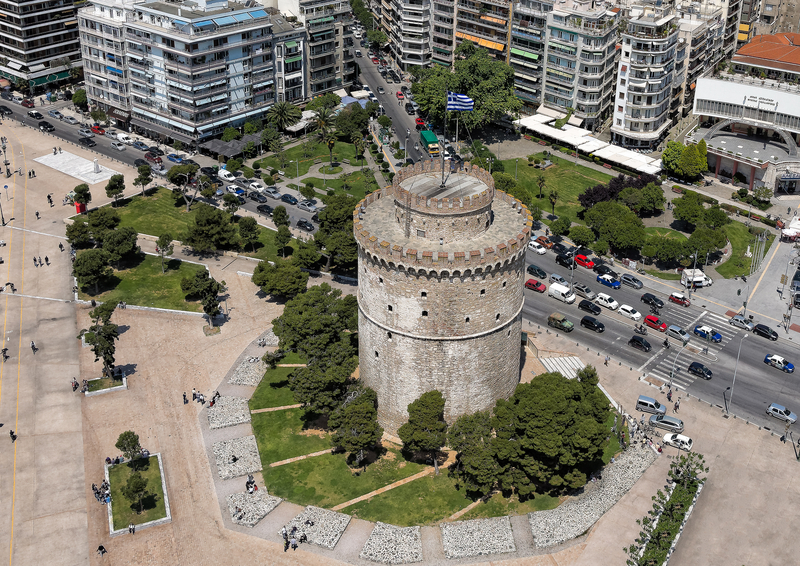 Tell us a few things about the Law School at the Aristotle University of Thessaloniki, its history, its spirit and its efforts to adapt to contemporary law policies.
Tell us a few things about the Law School at the Aristotle University of Thessaloniki, its history, its spirit and its efforts to adapt to contemporary law policies.
The LLM in European and Business Law is an English-speaking Master’s Degree. This is not the first time that our Faculty launches an English-speaking programme. Actually, we teach law in English, German and French for Erasmus students since the early ’90s. Our Law School is by far the most internationalised School in Aristotle University, since we host more than 150 European students every year. We have a tradition of 90 years of contribution to the legal science, the institutions, the Greek society and the country. Our objective is to continue our multifaceted work, constantly improving our performance and confirming in practice the very positive evaluation we receive both from the competent institutions and from the society.
N.M. (Images from the programme’s official site)

